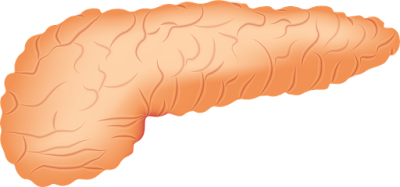What are the causes of gallstones?
Causes of gallstones
Gall bladder disease is the formation and accumulation of the so-called. deposits (gallstones).
Interestingly, the deposits made in the greater part of cholesterol present in the developed countries - in Western Europe and the United States. Risk factors for gallstone disease are:
• older age,
• female sex,
• genetic predisposition
• Diabetes,
• obesity,
• certain medications,
• chronic infections of the urinary tract.
Gall bladder disease and its symptoms
Stones in the gall bladder for a long time can not be detected. Vigilance should induce biliary colic, however, characterized by a sharp and paroxysmal course. It is caused by partial or complete blockage of the bile duct by a gallstone.
The pain may last from several minutes to several hours. At that time, is observed in patients with excessive sweating, nausea and vomiting. The described symptoms disappear when the movement of the plaque in the gall bladder bile. Prolonged bile duct planting results in radiating pain, high white blood cell counts (detectable after blood tests) and the difficulty of making a full breath.
Treatment of biliary colic is diastolic acute administration of drugs, but only if it is sporadic. If the pain persists, you should consult your doctor and undergo pharmacological treatment. Treatment of ailments, which is supported cholelithiasis may also natural herbal remedies.
How to combat the stones in the gall bladder
Stones in the gall bladder affects a large part of the population. It is estimated that this condition affects up to 20% of the population. Increased incidence of stones in the gall bladder is noted in the elderly. The causes of gallstones may include:
• high levels of cholesterol in the blood,
• poor diet consisting primarily of animal fats,
• obesity, diabetes,
• genetic predisposition,
• use of a certain class of drugs.
Signals indicative of the formation of deposits, or stones in the gall bladder, are sore abdomen and liver, nausea, bloating, a feeling of fullness. These problems may occur occasionally - when you do not appear every day. In such situations, you can ease the pain and analgesic agents diastolic. However, if the problem occurs frequently you'll need a medical consultation. Irritant gall bladder wall stones can not only affect, but also block its function. The stones may remain hidden and not manifest itself for a long period of time. Their presence is detected by occasional ultrasound.
Stones in the gall bladder and methods of treatment
Treatment of stones in the gall bladder may occur many ways. One of the main methods of dealing with deposits of a proper diet, a diet called the liver. It is a highly digestible diet and limiting fat intake. It is recommended not only for problems with stones in the gall bladder, but also the problems with the liver, pancreas and bowel inflammation. The most important dietary recommendation is to ban alcohol and eat light, small meals 5 times a day. Food should be prepared steamed and stewed.
The diet should be supported with plenty of still water and herbal infusions with birch bark, yarrow and dandelion. Doctors also recommend taking fiber to regulate your bowel movements. In cases of acute inflammation is recommended medication (analgesics, antibiotics), and treatment with surgery. In the latter case, the stones in the gall bladder is removed during a few hours of treatment.


Comments
Post a Comment